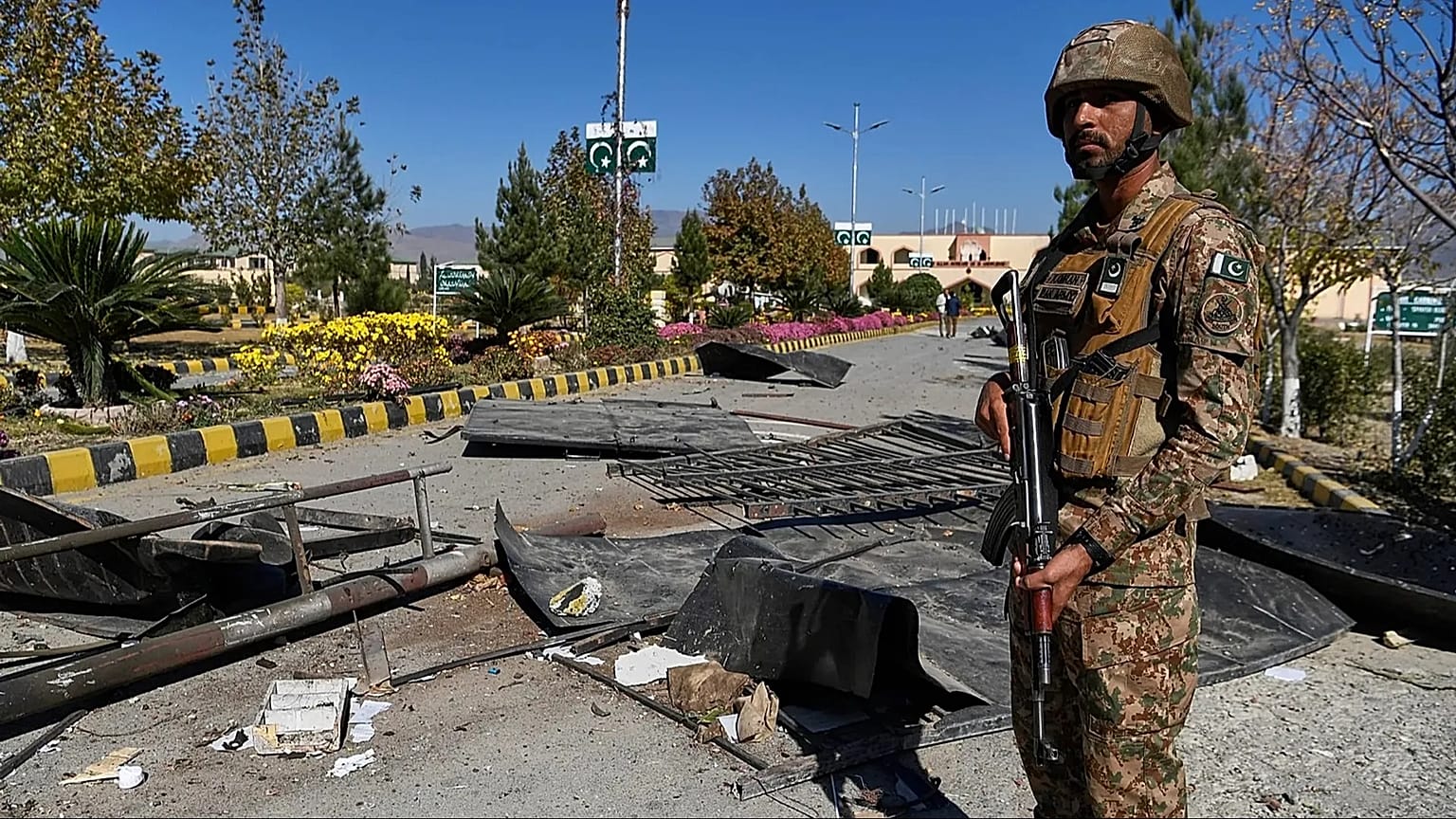Politics
Afghan Nationals Linked to Deadly Suicide Attacks in Pakistan

Tensions between Afghanistan and Pakistan have escalated following two recent suicide attacks in Pakistan, reportedly carried out by Afghan nationals. The attacks, which occurred this week, included one targeting a cadet college near the Afghan border and another outside a district court in Islamabad. On October 31, 2023, a suicide bombing outside the district court claimed the lives of 12 individuals and left 27 others injured. Just a day earlier, three soldiers were killed when militants stormed the Cadet College Wana in Khyber Pakhtunkhwa province.
Pakistan’s Interior Minister, Mohsin Naqvi, confirmed that both attacks were executed by Afghan citizens. He stated, “In both of the suicide bombings, Afghan citizens were involved, and they carried out the attacks.” As of now, there has been no response from the Afghan government regarding these claims.
The attacks highlight the deteriorating security situation in Pakistan, where the government confronts increasing militancy and strained relations with Afghanistan. Until the recent incidents, Islamabad had been viewed as relatively safe compared to other regions in the country, particularly the conflict-ridden northwest.
In response to the rising violence, Pakistan’s Prime Minister Shehbaz Sharif proposed holding talks with the Taliban government in Afghanistan, seeking to revive peace efforts. His call, made during a televised address, followed the collapse of negotiations in Istanbul the previous week, raising concerns that a ceasefire brokered by Qatar could be at risk of unraveling.
Pakistan has pressed Afghanistan to control the Tehrik-e-Taliban Pakistan (TTP), which has been responsible for numerous attacks in recent years. Although the TTP has distanced itself from the recent bombings, local media reported that authorities have taken several suspects into custody for questioning.
The Ministry of Information in Pakistan asserted that the attack on the cadet college was meticulously planned and directed from Afghanistan, claiming that Afghan nationals executed the operation using weapons supplied from their territory. According to their statement, the assault was orchestrated by a militant identified only as Zahid, allegedly with the approval of TTP’s chief, Noor Wali Mehsud.
Pakistan has long accused the Afghan Taliban of providing sanctuary to TTP leaders and fighters, a charge that Kabul has consistently denied. Notably, a faction of the TTP known as Jamaat-ul-Ahrar initially claimed responsibility for the bombing in Islamabad. However, they later retracted their statement.
The Pakistani Ministry of Information also claimed that the attackers were armed with “American-made” weapons sourced from Afghanistan. This claim reflects ongoing concerns that military equipment left behind during the U.S. withdrawal from Afghanistan in 2021 has fallen into the hands of militants, thereby enhancing the capabilities of groups like the TTP.
Tensions between the two nations have surged since October 9, 2023, when Kabul accused Islamabad of conducting drone strikes that resulted in multiple fatalities in Afghanistan. These strikes incited cross-border clashes, leading to a significant number of casualties among soldiers, civilians, and militants, before a ceasefire was established on October 19 through Qatari mediation.
Despite ongoing diplomatic efforts, including two rounds of peace talks in Istanbul that have not yielded results, the situation remains precarious. Afghanistan’s refusal to offer written assurances that its territory will not be used for attacks in Pakistan has been a significant sticking point in negotiations. The TTP, which operates in tandem with the Afghan Taliban, has gained confidence since the Taliban regained control of Afghanistan in 2021, complicating the already fragile relationship between Kabul and Islamabad.
As both nations navigate this tumultuous landscape, the recent attacks serve as a stark reminder of the challenges facing regional security and the urgent need for effective dialogue and cooperation to address these pressing issues.
-

 Top Stories3 months ago
Top Stories3 months agoTributes Surge for 9-Year-Old Leon Briody After Cancer Battle
-

 Entertainment4 months ago
Entertainment4 months agoAimee Osbourne Joins Family for Emotional Tribute to Ozzy
-

 Politics4 months ago
Politics4 months agoDanny Healy-Rae Considers Complaint After Altercation with Garda
-

 Top Stories4 months ago
Top Stories4 months agoIreland Enjoys Summer Heat as Hurricane Erin Approaches Atlantic
-

 World5 months ago
World5 months agoHawaii Commemorates 80 Years Since Hiroshima Bombing with Ceremony
-

 Top Stories3 months ago
Top Stories3 months agoNewcastle West Woman Patricia Foley Found Safe After Urgent Search
-

 Top Stories5 months ago
Top Stories5 months agoFianna Fáil TDs Urgently Consider Maire Geoghegan-Quinn for Presidency
-

 World5 months ago
World5 months agoCouple Convicted of Murdering Two-Year-Old Grandson in Wales
-

 World5 months ago
World5 months agoGaza Aid Distribution Tragedy: 20 Killed Amid Ongoing Violence
-

 World5 months ago
World5 months agoAristocrat Constance Marten and Partner Convicted of Infant Murder
-

 Top Stories4 months ago
Top Stories4 months agoClimbing Errigal: A Must-Do Summer Adventure in Donegal
-

 Top Stories4 months ago
Top Stories4 months agoHike Donegal’s Errigal Mountain NOW for Unforgettable Summer Views









